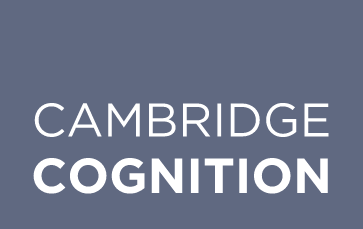Cognition in The Blood (Biomarker)
How do digital cognitive assessments relate to the Blood Plasma p-Tau217 in patients with Mild Cognitive Impairment (MCI)?
Our latest research explores an exciting dataset with the AI–Mind Project, who have given us the opportunity to test the associations of our cognitive assessments alongside classic paper-and-pencil tests to levels of Tau-pathology blood biomarker test (BBM) p-Tau217.
The AI-Mind Project
Among many types of data, the AI-Mind project has collected samples of p-Tau217 from hundreds of patients that have been clinically diagnosed as having mild cognitive impairment (MCI), either having referred themselves or having had a carer or relative put them in touch with a clinic.
Mild Cognitive Impairment (MCI) and Plasma p-Tau217
MCI is often a precursor to AD, with an annual progression rate to AD dementia of between 14% and 18% (e.g. see Tifratene et al. 2015). For that reason, establishing among those with MCI their likely disease trajectory can be very helpful when it comes to screening for inclusion in trials.
Elevated levels of blood plasma p-Tau217 can indicate the presence of Alzheimer’s disease (AD) pathology while being relatively non-invasive and inexpensive to assay. This makes it invaluable in AD research and drug development, and in future it may become a routine blood test.
While p-Tau217 alone can be an important signpost of underlying pathology, such physiological measures are only part of the story. The primary impacts of AD are cognitive ones, so it is important to understand the relationship between cognitive capabilities and physiological markers.
Cambridge Cognition Alongside Traditional Measures in MCI
The recent poster we presented at the 2025 Alzheimer’s Association International Conference, “Sensitivity of Cognitive Outcome Measures to Plasma p-tau217 in Mild Cognitive Impairment in the AI-Mind study”, explores how a variety of our CANTAB test measures relate to p-Tau217 levels, while putting them in the context of pencil and paper neuropsychological measures obtained in one-on-one interviews.
The analysis shows that our digital tasks have at least comparable sensitivity to p-Tau217 as classical tasks. Whereas classical tasks must be obtained in person by a highly qualified expert neuropsychologist, our tasks are automatically delivered and scored, and are suited to remote testing.
Acknowledgement
The AI-Mind project has received funding from the European Union’s Horizon 2020 Research and Innovation Programme under grant agreement No 964220. This blog post reflects the views of the author, and the European Commission is not responsible for any use that may be made of the information it contains.
References
Tifratene, K., Robert, P., Metelkina, A., Pradier, C., & Dartigues, J. F. (2015). Progression of mild cognitive impairment to dementia due to AD in clinical settings. Neurology, 85(4), 331-338.
Poster Download Request
Thank you for your interest in our research. Please complete the form below to access our research content.
Author

Rob Baker
Chief of Product & Operations

Job title

Job title

